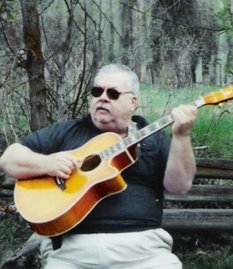Blog Archive
-
▼
2010
(6)
- ► 05/02 - 05/09 (3)
- ► 04/25 - 05/02 (1)
- ► 01/03 - 01/10 (1)
-
►
2009
(1)
- ► 12/20 - 12/27 (1)
-
►
2008
(10)
- ► 10/26 - 11/02 (1)
- ► 09/28 - 10/05 (1)
- ► 08/24 - 08/31 (2)
- ► 08/03 - 08/10 (1)
- ► 06/08 - 06/15 (1)
- ► 06/01 - 06/08 (1)
- ► 02/10 - 02/17 (1)
- ► 01/27 - 02/03 (1)
- ► 01/06 - 01/13 (1)
-
►
2007
(40)
- ► 10/28 - 11/04 (1)
- ► 10/14 - 10/21 (3)
- ► 09/30 - 10/07 (1)
- ► 09/02 - 09/09 (1)
- ► 08/26 - 09/02 (1)
- ► 07/22 - 07/29 (1)
- ► 06/17 - 06/24 (4)
- ► 06/10 - 06/17 (1)
- ► 06/03 - 06/10 (1)
- ► 05/20 - 05/27 (1)
- ► 05/13 - 05/20 (1)
- ► 04/29 - 05/06 (1)
- ► 04/15 - 04/22 (6)
- ► 04/08 - 04/15 (3)
- ► 02/25 - 03/04 (2)
- ► 02/11 - 02/18 (1)
- ► 01/28 - 02/04 (1)
- ► 01/21 - 01/28 (3)
- ► 01/14 - 01/21 (2)
- ► 01/07 - 01/14 (5)
-
►
2006
(4)
- ► 12/31 - 01/07 (3)
- ► 12/24 - 12/31 (1)
Monday, October 4, 2010
And we're moving on - hopefully
Thursday, May 6, 2010
agents and agencies and editors, oh my!
TOTAL FundsforWriters - May 2, 2010. I think my head is spinning but it was a good opportunity to read about different agencies and their staff. It was also interesting that Hope included a couple contests for flash fiction.
Tuesday, May 4, 2010
a new contest by Simon
Monday, May 3, 2010
A contest! A contest! My kingdom for a contest!
Tuesday, April 27, 2010
Wednesday, January 6, 2010
This next one is from Karen Mittan. It’s long, but it’s worth reading every word, because it’s an excellent analogy. She says,
“I really like Mr. Miller’s analogy in his number eight rule for writing: Don’t be a draught horse. Work with pleasure only. It’s evocative. But I totally disagree with his syllogism.
To begin with, he seems to assume that draught – or draft – horses are all work and no play or pleasure. Having grown up with draft horses, I’d beg to differ. True, their work is generally tedious and repetitious. Our horses pulled farm machinery and sleighs in weather that no animal could enjoy…hot in summer and minus forty-five F. in winter. They did it daily and faithfully. But to assume there was no fun involved indicates, to me, that Mr. Miller maaaybe didn’t know his draft horses very well.
I’ve known horses that were clowns. (We had one who repeatedly performed a routine he discovered we’d laugh at.) I’ve known horses that weren’t above getting their own back at each other or at their owners. (We had one horse who was smart enough to figure out that chewing on my long hair would freak me. If it happened today, I’d have a word with the horse. But I was ten at the time and he got the reaction he was looking for. Knowing animals as I do now, I think that old boy had a lot of fun at my expense that day. He probably chuckled about it for hours.) I’ve also known horses that were the epitome of faithfulness, trustworthiness and loyalty while in the harness but full of play with each other once they were turned out to pasture.
And then, too, if one wants to compare what writers do to what an animal does, isn’t the ‘draught’ horse the perfect comparison? Draft one, draft two—draft twenty? Much of the work of writing is as tedious as the day-to-day work of a draft horse. Constructing scenes can be joyful. I frequently have a lot of fun with them. But ohmygoodness! those sequels are the pits. Making prose flow, bridging the gap between scenes, is very difficult and excessively tiring. At least it is for me.
In my experience, constructing a story that has thought, continuity and flow is not particularly pleasurable. It’s tedium ad nauseum. Like the draft horse’s routine work, in order to finish a story, an author must do the same thing over and over and over: apply the seat to the chair, the fingers to the keyboard and the brain to the project at hand.
It’s repetitious, too. While the draft horse may pull the plow in a new field tomorrow, he’s still pulling the plow in the same general pattern his owner determined for him today. So, too, the writer may be working on a new story but it has to have the same basic elements, the same general plot structure, the same carefully constructed language. And he’s not working for himself, either. His reader is his owner. Like the draft horse, if he doesn’t work hard to please the ‘owner’, he may not have too much food on his table next winter.
I think there’s a reason why draft horses were/are frequently called ‘plugs’. According to Webster’s finest, the word has a double meaning when applied to draft animals: ‘a worn out animal’ and ‘to work hard and steadily’. I think both definitions frequently fit writers just as well. We do become worn out with the seemingly endless drafting and rewriting of our prose/poetry projects. However, we also must work hard and steadily if we're to accomplish the task at hand.
So I identify with the ‘draught’ horses. I think we have a lot in common. Do I work hard and steadily? I try to. Do I always enjoy what I’m doing? Frequently not. It is, after all, work. Do I gain pleasure as I write? Sometimes. When the prose is flowing easily, when the humor bubbles up, when an acute phrase pops into into my head, then my work is a pleasure. Most of the time, however, I just plug away, knowing that, if I’m careful and consistent, the pleasure will come at the end of the day when I’m turned out to grass and I can read what I’ve written and call it good.”



